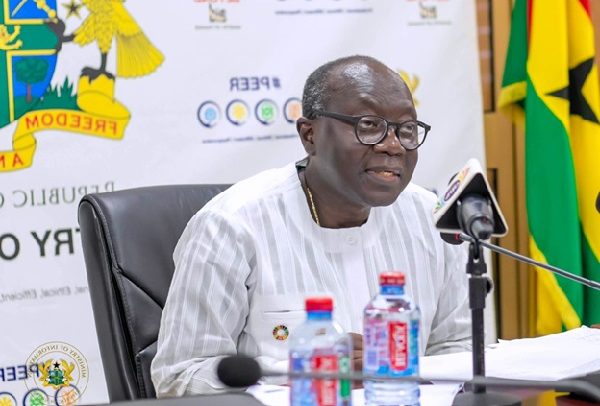Ken Ofori-Atta
The Ghana CSOs Platform on the Sustainable Development Goals (SDGs) has appealed to the government to scrap import tax on sanitary products to make them affordable to all women and girls.
According to them, currently, sanitary products are highly taxed making it expensive for most women and girls to afford them.
“Sanitary products are currently enlisted on the chapter 96 of the Harmonised System, and that attracts a 32.5 per cent tax on imported sanitary pads, which is made up of 20 per cent import duty and 12.5 per cent in Value Added Tax,” said National Coordinator Ghana CSOs Platform on SDGs, Levlyn Konadu Levlyn.
The Platform thus called on the Ministry of Finance and the government to reclassify sanitary product as ‘essential social goods’ which is zero (0) rated.
“The Platform reminds the government that African countries such as Kenya, Rwanda, and South Africa have removed taxes on sanitary products and so can Ghana,” it said.
This was contained in a press release to commemorate the 2023 Menstrual Hygiene Day which falls on Sunday 28th May 2023, themed, “Making menstruation a normal fact of life by 2030.”
The Platform noted that women’s and adolescent girls’ ability to care for their bodies while menstruating is an essential part of their fundamental human right noting that poor menstrual health and hygiene therefore represent an affront to this right, including the right to work and go to school.
“Insufficient resources to manage menstruation, such as sanitary pads and clean water, worsen the already existing social and economic inequalities. It further undermines human dignity and attacks the confidence of girls and women,” it said.
The Platform therefore called for a comprehensive effort aimed at making sanitary products affordable and intensifying public education on menstruation.
It also appealed to Ghanaian schools, workplaces, and public institutions to ensure that people can manage menstruation with comfort and dignity while being productive.
It noted, “our aim is to contribute to the building of a fairer, healthier, gender-responsive Ghana that acknowledges and works towards achieving the vision for sanitation and hygiene under Goal 6 of the Sustainable Development Goals by 2030, achieve access to adequate and equitable sanitation and hygiene for all, paying special attention to the needs of women and girls and those in vulnerable situations”.
The Platform also urged the government to increase political priority and ignite action for menstrual health and hygiene so that women and girls feel confident, comfortable, and free of any shame.
“Policies that eliminate period poverty, especially for low-income women and girls who struggle to afford menstrual products and have limited access to water and sanitation services, must be expedited,” it urged.
By Jamila Akweley Okertchiri


